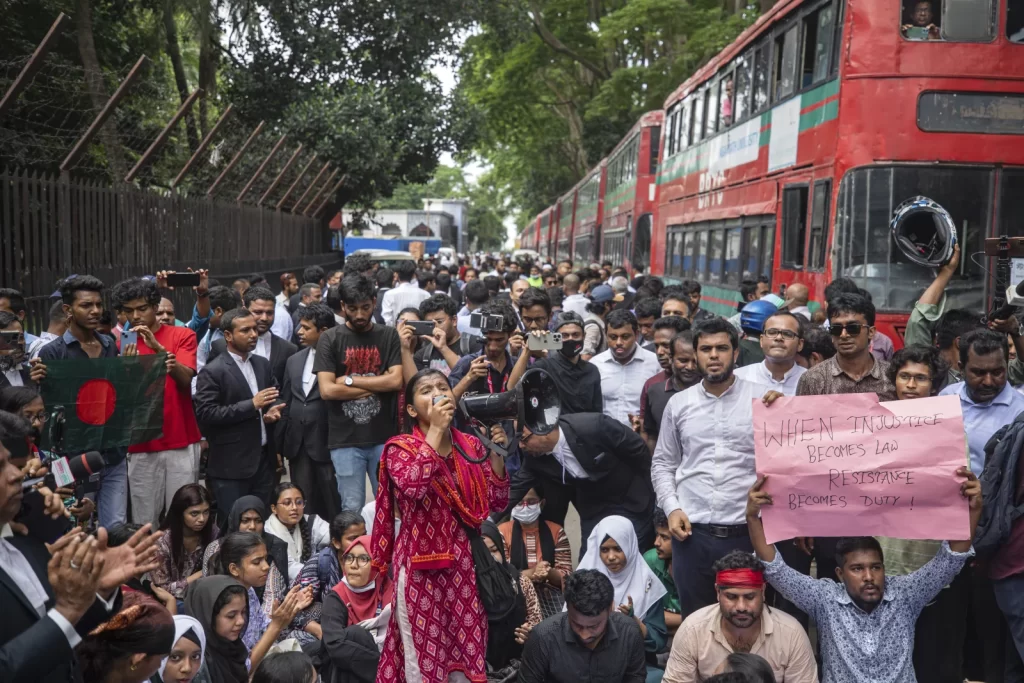
In early August of this year, the People’s Republic of Bangladesh, a South Asian country, witnessed Prime Minister Sheikh Hasina’s 15-year rule ending with her resignation and fleeing the country. This was the climactic end of a yearlong student-led protest across Bangladesh that illuminated the need for change.
Protests started after the Supreme Court changed the national jobs quota system for the Bangladesh Civil Service. Those opportunities were well-paying government jobs that many sought after graduating from college.
A new Supreme Court decision would guarantee thirty percent of Bangladesh Civil Service jobs to the progeny of “freedom fighters” who are veterans of the country’s war of independence from Pakistan. Thus leaving fewer jobs for underprivileged and vulnerable Bangladeshis.
With 53 public and 107 private universities, the region boasts a record-breaking number of domestic and international graduates, yet there are few to no opportunities for diploma holders.
Students demanded a merit-based quota system, a hiring practice in which candidates are considered for their skills, knowledge, or abilities. Additionally, they organized peaceful protests, with demonstrators marching in the streets. Peace has been at the forefront of all protests in Bangladesh.
The Associated Press has confirmed that the country mourns more than 200 students killed by paramilitary police who used weapons like tear gas and firearms to disperse protesting crowds.
Furthermore, before Sheikh Hasina escaped from the revolution, she escalated the situation. Responding to the protests by shutting down all universities indefinitely intensified the unrest. Protestors felt they were not being heard by their leaders, especially after students started dying.
President Shreya Tangirala of the Oklahoma City University Indian Student Association, or ISA, recently shared their thoughts about the student movement with The Campus: “Honestly, students have the power to do anything.”
The government denied journalist visas but could not stop them from visiting Bangladesh to demonstrate support and solidarity. Fiona Lali, a revolutionary communist and activist visiting Bangladesh, commented on government actions on social media.
“This is not just about the discriminatory quota system, which must end. This is about a government that is based on inequality, and a state that is based on violence cannot last.”
Moreover, The violence reached a breaking point, and the prime minister fled to neighboring India. At the revolution’s conclusion, people hugged, sang, danced, and spread flowers in the streets of Dhaka. Bangladesh’s army chief announced an interim government led by Nobel Peace Laureate Muhammad Yunus.
The President and Vice President of the student-led ISA organization on the OCU campus expect big change. They hope a strong person with impactful communication skills will take the helm in Bangladesh.
Vice President of the ISA Akhila Gundekari highlights the importance of students and their passions.
“I feel like students have the power, too. If we give it a chance, we can make world wonders,” she said.
Although Bangladesh is on the other side of the globe, the events that involved students vastly impacted the student body on the OCU campus.


Leave a Reply